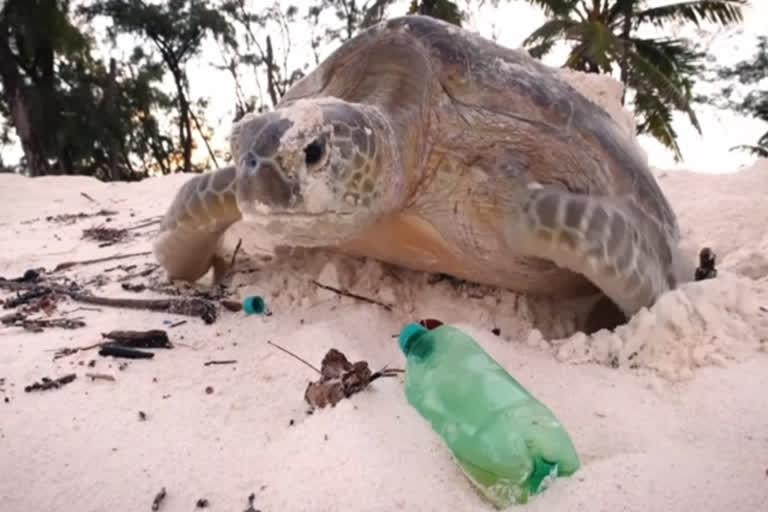Seychelles: Conservationists are struggling to tackle mounds of plastic waste, washing onto the shores of a remote UNESCO World Heritage site.
Aldabra in the Indian Ocean is an important turtle nesting site, but conservationists say an estimated 1,000 tonnes of plastic waste has now washed up onto its remote shores.
This green turtle swam hundreds of miles to lay her eggs on the isolated Aldabra atoll, but plastic got here first. It was brought by the ocean's currents and washed up on one of the most important turtle nesting sites in the Indian Ocean.
In almost every cove of the UNESCO World Heritage site, conservationists from the Aldabra Clean Up Project are finding plastic. They do their best to collect it, but the amount of debris is too great.
The scientists estimate there could be up to 1,000 tonnes of plastic waste on Aldabra. From bottles and rope, to flip flops. Around 2.5 billion people live on the shores of the Indian Ocean - from East Africa to the Arabian Peninsula, the Indian sub-continent and Southeast Asia.
Buoyant plastics travel thousands of miles, from as far away as Indonesia. On Aldabra, one of the world's largest atolls, it's affecting the island's vulnerable wildlife.
With a bottle cap stuck on its beak, this ibis bird could starve to death. Even Aldabra's famous giant tortoises appear to have acquired a taste for plastic waste.
